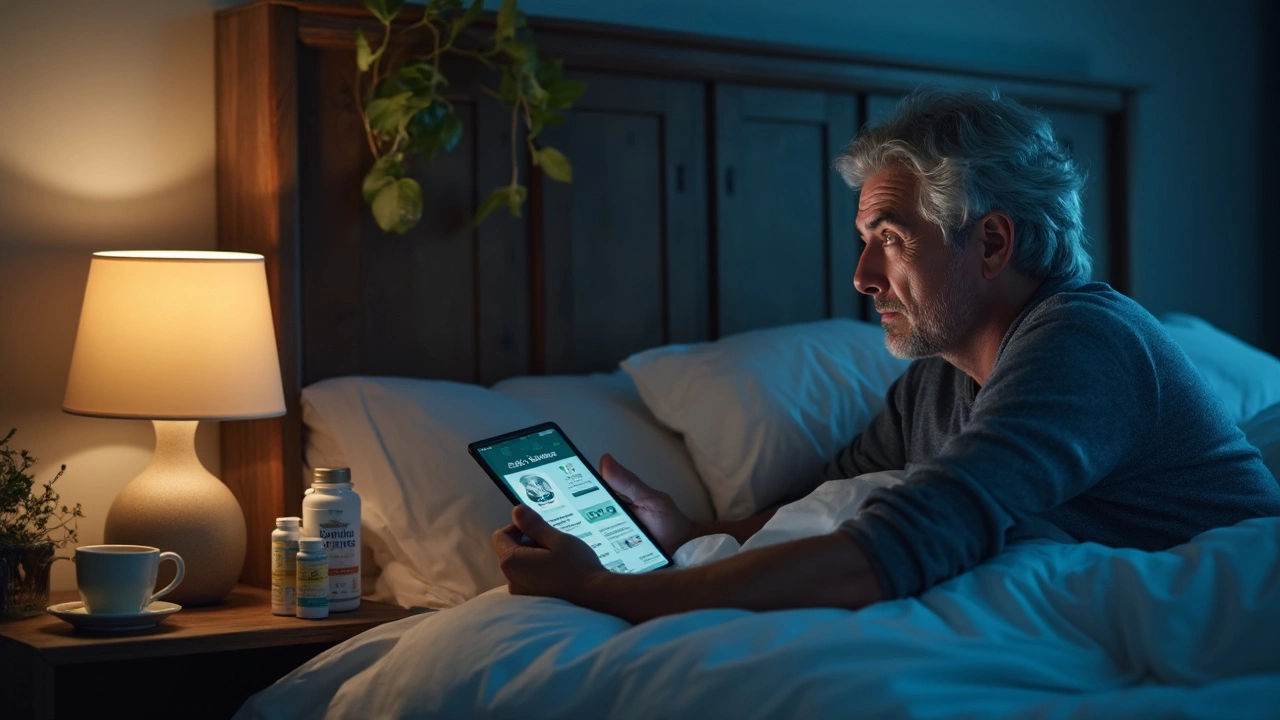Atorvastatin and Sleep: What You Should Know
Are you taking atorvastatin and noticing sleep changes? You’re not alone. Some people report trouble falling asleep, vivid dreams, or waking up during the night after starting statins. Research is mixed, but it helps to know what might be causing sleep problems and what to try next.
Statins lower cholesterol and reduce heart attack risk. Atorvastatin is a common statin with a long half-life. That means it stays in your body longer, so timing the dose is not as strict as with some other statins. Still, side effects can vary from person to person.
How atorvastatin can affect sleep
Sleep changes linked to statins include insomnia, fatigue, and strange dreams. Scientists aren’t sure why. Some ideas: statins may affect brain chemicals, muscle aches can wake you, or the stress of starting a new medication can change sleep. Large studies show little or no overall effect on sleep for most people, but individual experiences differ.
Practical steps to manage sleep while on atorvastatin
First, rule out other causes. Pain, caffeine, late meals, stress, and other drugs often disturb sleep. Check any new medicines or supplements that might interact.
Try these simple steps: keep a regular sleep schedule, avoid screens before bed, limit caffeine and alcohol late in the day, and make the bedroom dark and cool. If muscle aches are waking you, tell your doctor—lowering the dose or changing the statin might help.
If you think atorvastatin is the problem, don’t stop it suddenly. Talk with your prescriber first. They may suggest switching to another statin, lowering the dose, or trying a different strategy for heart risk. For people with strong heart disease risk, the benefits often outweigh mild sleep issues.
Some people find short-term sleep aids or melatonin useful. Mention these to your doctor so they can check for interactions and safety in your case. A sleep diary for two weeks can help you and your doctor spot patterns and decide on next steps.
One practical point is timing. Atorvastatin has a longer lasting effect than older statins, so many people take it in the morning or evening without big difference. Still, if you started it at night and sleep worsened, try taking it in the morning for a few weeks and note any change. Also ask your doctor about blood tests. They may check liver enzymes and muscle markers if you report new sleep loss with muscle pain or extreme tiredness. Monitoring is simple and quick.
When to see your doctor? If sleep problems are severe, if you feel very tired during the day, or if you have muscle weakness or severe muscle pain, contact your healthcare provider quickly. These can be signs of more serious side effects.
Quick summary: atorvastatin rarely causes major sleep problems for most people, but it can for some. Use sleep hygiene, check for other causes, and talk to your doctor before changing medication. With the right approach you can protect your heart and keep good sleep.
Statin-Induced Sleep Side Effects: Practical Fixes for Better Rest
Statin medications can sometimes mess with your sleep and leave you drained the next day. This article digs into practical steps—like smart supplement choices, lifestyle tweaks, and talking to your doctor about dose changes—to make statin-induced sleep problems easier to handle. You’ll find science-backed advice, real-world tips that actually work, and insights to help you sleep better while still getting the benefits of your meds. Dive into the science, the strategies, and what you can do tonight to rest easier. You’ll also discover where to find more detailed guides if you need extra help.
More
